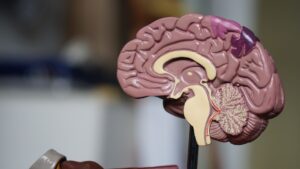Autism is a neurodevelopmental disorder that affects communication, social interaction, and behavior. Children with autism often have difficulty with social interactions, sensory processing, and communication, making it challenging for parents to keep track of them in public places. While keeping a close eye on their children is vital for the safety of these children, parents of children with autism often face unique challenges, especially when it comes to monitoring their child’s safety.
Table of Contents
One solution to this problem is to use tracking devices specifically designed for children with autism. We put together the 5 Top Tracking Devices for Autistic Children to help parents keep track of their children, even when they are out of sight, and provide them with peace of mind. In this blog post, we will discuss what tracking devices are, how they work, and the benefits they offer for children with autism.
What are tracking devices for autistic children?
Tracking devices for autistic children are wearable devices that use GPS and other technologies to track the location of the child. These devices are typically small, lightweight, and unobtrusive, designed to be worn by the child without causing any discomfort. They can be attached to a child’s clothing, worn as a wristband, or attached to a backpack or other personal belongings.
How do tracking devices work?
Tracking devices use a combination of GPS, cellular, and wireless technologies to track the location of the child. The GPS component determines the location of the device, while the cellular component communicates that information to the parent’s phone. Some tracking devices also use wireless technologies like Bluetooth to alert the parent when the child moves out of a predefined range.
When a child is wearing a tracking device, their location is constantly updated and transmitted to the parent’s phone or computer. Parents can use a smartphone app or a web-based interface to track their child’s location in real-time. Some tracking devices also provide alerts when the child leaves a predefined area, such as their school or home, allowing parents to react quickly if the child wanders off.
Benefits of tracking devices for autistic children
The benefits of tracking devices for autistic children are numerous. Some of the most significant benefits include:
Increased safety: The primary benefit of tracking devices for autistic children is increased safety. Children with autism are prone to wandering, and they can quickly become disoriented or lost. A tracking device can help parents locate their child quickly if they wander off, reducing the risk of harm or injury.
Peace of mind: Tracking devices offer parents peace of mind, knowing that they can quickly locate their child if they become lost or wander off. This can reduce the stress and anxiety that parents of children with autism often experience.
Improved independence: Many children with autism struggle with independence, and tracking devices can help them gain more independence by allowing them to explore their surroundings without parents constantly hovering over them.
Enhanced communication: Tracking devices can help improve communication between parents and children. Parents can use the device to send messages or alerts to their child, letting them know that they are nearby or providing them with directions to a specific location.
Increased confidence: Tracking devices can help increase the confidence of both parents and children. Parents feel more confident allowing their child to explore their environment, knowing that they can quickly locate them if necessary. Children, on the other hand, feel more confident knowing that they can explore without the fear of becoming lost.
Choosing the right tracking device for your child
When it comes to choosing a tracking device for your child, there are several factors to consider. Some of the most important factors include:
Size and weight: The device should be small and lightweight, so it does not cause discomfort or irritation to your child.
Battery life: The device should have a long battery life, so it does not need to be recharged frequently.
Durability: The device should be durable enough to withstand the wear and tear of daily use.
Range and accuracy: The device should have a range and accuracy that meets your needs. If you need to track your child in large open areas, such as parks or playgrounds, you may need a device with a longer range.
User-friendliness: The device should be easy to use and set up, with a simple and intuitive interface.
Price: The cost of the device is also an important consideration. While some devices may be more expensive, they may also offer more features or a higher level of accuracy.
Examples of tracking devices for autistic children
There are several tracking devices available specifically designed for autistic children. Some of the most popular options include:
AngelSense: AngelSense is a GPS tracker that attaches to a child’s clothing or backpack. It offers real-time tracking, two-way communication, and alerts when a child leaves a designated area.
Jiobit: Jiobit is a small, lightweight tracker that can be attached to a child’s clothing or worn as a wristband. It offers real-time tracking, geofencing, and alerts when a child leaves a designated area.
GizmoWatch: The GizmoWatch is a wearable device that offers GPS tracking, two-way calling, and messaging. It can be worn as a watch and is available in several different colors.
Tile Mate: Tile Mate is a small, lightweight tracker that can be attached to a child’s backpack or personal belongings. It offers real-time tracking, a long battery life, and can be easily replaced if lost.
- Apple AirTag: Keep track of and find your items alongside friends and devices in the Find My app.
Research
In conclusion, tracking devices for autistic children can provide parents with peace of mind, increased safety, and improved communication. When choosing a tracking device, parents should consider factors such as size and weight, battery life, durability, range and accuracy, user-friendliness, and price. With the right tracking device, parents can help their children with autism gain more independence and confidence while staying safe and secure.
Our Top Amazon Picks
-
- Sale!
- Tracking Devices
Jiobit – Smallest GPS Tracker for Kids, Adults, Elderly | Lightweight, Water Resistant, Durable, Encrypted | Real-Time…
-
$149.99Original price was: $149.99.$112.65Current price is: $112.65. - Learn More








